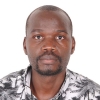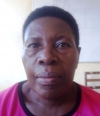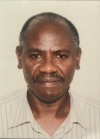SIMON BYONANUWE
ID:
|
“Prevalence, bacterial pathogens and factors associated with premature rupture of membranes at Kampala International University Teaching Hospitalâ€.
REFNo: HS503ES
Main objective: To determine the prevalence, bacterial pathogens and factors associated with premature rupture of membranes at Kampala International University Teaching Hospital.
Specific objectives:
1. To determine the prevalence of premature rupture of membranes at Kampala International University Teaching Hospital.
2. To determine the obstetric and gynaecologic factors associated with premature rupture of membranes at Kampala International University Teaching Hospital.
3. To identify bacterial pathogens commonly associated with premature rupture of membranes at Kampala International University Teaching Hospital.
4. To assess antibacterial susceptibility patterns of the isolated bacterial pathogens.
|
Uganda |
2019-12-09 |
2022-12-09 |
Medical and Health Sciences |
|
Degree Award |

|
PETER SPENCER SIMNER
ID:
|
Etiology of Nodding Syndrome: an Epileptic Disorder of East African Children
REFNo: HS410ES
Increase understanding of the role of environmental exposures, notably to specific neurotropic viruses, as risk factors for Nodding syndrome.
|
USA |
2019-12-04 |
2022-12-04 |
Medical and Health Sciences |
|
Non-degree Award |

|
Willy Ssengooba
ID: UNCST-2022-R001801
|
PERFORMANCE OF ALTERNATIVE MEASURES OF RESPONSE TO THERAPY DURING THE INITIAL 12 WEEKS OF MDR-TB TREATMENT
REFNo: HS471ES
1. To examine the correlations of FDA smear microscopy, PMA-Xpert Ct value &16s rRNA (MBLA) with MGIT-TTP as a reference standard.
2. To evaluate the ability of FDA smear microscopy, PMA-Xpert Ct value, MBLA in predicting 12-weeks MGIT culture conversion (outcome).
3. To evaluate the influence of patient clinical characteristics, baseline resistance profiles, adherence and HIV-status to the performance of the alternative measures of response.
|
Uganda |
2019-12-04 |
2022-12-04 |
Medical and Health Sciences |
|
Degree Award |

|
Jimmy Otim
ID:
|
Bridewealth and the Future of Customary Marriages in postwar Acholi society
REFNo: SS377ES
To examine the cultural relevance of bride wealth practices in shaping customary marriages across generations in Acholi society
To find out the changes which have occurred overtime to bride wealth practices in shaping customary marriages
To investigate how marriages are contracted in the face of scarcity of cattle and increasing bride wealth payments in postwar Acholi society
To explore perceptions and attitudes of men and women towards bridewealth practices, cohabitation, and children born out of wedlock
|
Uganda |
2019-12-04 |
2022-12-04 |
Social Science and Humanities |
|
Degree Award |

|
Gerardo Zarazua de Rubens
ID:
|
Cleaning the air through cooking: providing alternative energy solutions for cooking practices in the Bidibidi Refugee Settlement in Yumbe district in Uganda
REFNo: SS390ES
The project focuses on investigating emissions and respiratory impact between traditional fuel burning cooking methods (solid biomass/ charcoal/ firewood) and solar voltaic clean cooking methods within the Bidibidi Refugee Settlement in northern Uganda. The aim is to evaluate the type and level of impact of each technology, in particular the effects on the environment in the form of air pollution and impacts such as deforestation, wellbeing (health and economic creation) and safeguarding.
|
Mexico |
2019-12-04 |
2022-12-04 |
Social Science and Humanities |
|
Non-degree Award |

|
Peter Kirabira Simon
ID: UNCST-2020-R014690
|
Active Reporting of Adverse drug reactions of antiretroviral drugs among adults living with HIV in East Africa: a pilot study on using SMS
REFNo: HS431ES
2. Objectives
2.1 Main objective:
To test the feasibility and acceptability of Mhealth system to create awareness on importance of reporting adverse drug reactions of antiretroviral therapy among adults living with HIV in Tanzania and Uganda
2.2 Specific objectives
1. To investigate feasibility of the SMS system among health care workers by measuring practicality, actual fit, utility, trialability,
2. To investigate acceptability of the system among health care workers by measuring and comfort, relative advantage and credibility
3. To investigate feasibility of the system among PLHIV by measuring practicality, actual fit utility, trialability.
4. To investigate acceptability of the system among PLHIV by measuring comfort, relative advantage and credibility.
5. To describe the perceptions/attitudes of HCWs towards the use of m-health to improve ADR reporting.
6. To investigate the technical feasibility of the system by measuring sent, received and replied messages.
7. To give an overview of reported ADRs among adults living with HIV in KCMC and Majengo in Moshi and Nsambya in Kampala
|
Uganda |
2019-11-27 |
2022-11-27 |
Medical and Health Sciences |
|
Non-degree Award |
b.jpg)
|
Assumpta Barigye
ID:
|
Records Management Practices and Administrative Staff Performance in Private Universities in Uganda: A case of Nkumba University and Uganda Christian University
REFNo: SS370ES
1. to examine how Records Management Practices impact on Administrative Staff Performance in NU and UCU
2. to establish how Records Creation contributes to Administrative Staff Performance in NU and UCU
3. to determine how Records Maintenance ensures Administrative Staff Performance in NU and UCU
4. to access the extent to which Records Disposal Contributes to Administrative Staff performance in NU and UCU
5. to analyze the extent to which Reward Management moderates the relationship between Records Management Practices and Administrative Staff Performance in NU and UCU
|
Uganda |
2019-11-27 |
2022-11-27 |
Social Science and Humanities |
|
Degree Award |

|
Mukisa Ayub
ID:
|
Gender and adaptive capacity to climate change among small holder farmers in Karamoja sub region
REFNo: SS379ES
i) To evaluate the effects of drought on crops and livestock for men and women in Nabilatuk District
(ii) To establish the resources for men and women in crop and livestock farming
(iii) To assess infrastructure and technological capacities of men and women in livestock and crop farming.
(iv) To identify governance, institution, and networks for men and women in crop and livestock farming.
v) To find out adaptation/resilience practices for men and women in crops and livestock farming
|
Uganda |
2019-11-27 |
2022-11-27 |
Social Science and Humanities |
|
Degree Award |

|
Denish Calmax Angol
ID:
|
Antibacterial Use and Resistance in Under Five Children in Post Conflict Northern Uganda
REFNo: HS362ES
General study objective
•To assess the burden, drivers of inappropriate antibacterial prescriptions and resistance patterns of the pathogens among under five children attending care in selected public health facilities in Lango sub-region, northern Uganda.
Specific objectives
•To determine microbiologically, the burden and drivers of inappropriate prescription of antibacterials for under 5-year outpatient children presenting with acute diarrhoea at public health facilities in Lango sub-region (Sub-study I)
•To determine microbiologically, the burden and drivers of inappropriate prescription of antibacterials for under 5-year outpatient children presenting with UTRIs at public health facilities in Lango sub-region (Sub-study II)
•To determine the proportion of bacterial species and their resistance among under 5 year inpatient children with systemic infections at Lira Regional Referral Hospital (Sub-study III)
•To determine the prescribers’ knowledge, attitudes and practices regarding antibacterial prescription with respect to the available guidelines for under 5-year outpatient children with acute diarrhoea and URTIs at public health facilities in Lango sub-region (Sub-study IV)
|
Uganda |
2019-11-19 |
2022-11-19 |
Medical and Health Sciences |
|
Degree Award |

|
Gerald Mboowa
ID:
|
UNDERSTANDING TRANSMISSION DYNAMICS AND ACQUISITION OF ANTIMICROBIAL RESISTANCE AT REFERRAL HOSPITALS AND COMMUNITY SETTINGS IN EAST AFRICA
REFNo: HS411ES
i. To determine the prevalence, antimicrobial resistance profiles and the common phenotypic mechanisms of resistance in bacteria isolated from study participants from the orthopaedic ward at Mulago hospital, hospital environments and corresponding community settings.
ii. To describe the emergence, transmission networks, and epidemiology of drug resistant bacteria in the orthopaedic ward at Mulago hospital, hospital environments and corresponding community settings.
iii. To investigate behaviors/practices that influence the emergence and spread of drug resistant bacteria in the orthopaedic ward at Mulago hospital, hospital environments and corresponding community settings.
|
Uganda |
2019-11-19 |
2022-11-19 |
Medical and Health Sciences |
|
Non-degree Award |

|
ERIC WOBUDEYA
ID: UNCST-2019-R001047
|
DEVELOPMENT OF A DIAGNOSTIC PREDICTION SCORE FOR TUBERCULOSIS IN HOSPITALIZED CHILDREN WITH SEVERE ACUTE MALNUTRITION
REFNo: HS445ES
Primary Objective
To develop a diagnostic prediction score for TB in hospitalized children with SAM
Secondary Objectives
1. To assess the prevalence of TB among hospitalized children with SAM.
2. To describe the symptoms and clinical characteristics of TB disease in hospitalized children with SAM.
3. To develop a first-step screening prediction score to identify children with presumptive TB among hospitalised children with SAM
4. To propose a stepwise diagnostic algorithm based on the score(s) developed
5. To assess the diagnostic performance and the added value in a diagnostic prediction score for TB in hospitalized children with SAM of the following tests:
a. Ultra performed on one NPA and one stool sample
b. Chest radiography features as assessed by the simplified TB-Speed CXR reading tool
c. Abdominal ultrasound
d. QuantiFERON®-TB Gold In-Tube (QFT) IGRA
e. Monocyte-to-lymphocyte ratio (MLR)
f. CRP
6. To assess the feasibility of collecting NPA and stool in children with SAM
7. To assess the safety and tolerability of NPA collection in children with SAM
8. To assess mortality and weight gain at 6 months in children with SAM, with or without anti-TB treatment
9. To assess the effect of bacteriological features (Xpert and/or culture-confirmed TB) and other key patient characteristics (age, HIV status, initial severity markers, percentage weight gain, and CXR features) on TB treatment outcome.
|
Uganda |
2019-11-19 |
2022-11-19 |
Medical and Health Sciences |
|
Non-degree Award |

|
Wilberforce Tushemereirwe
ID:
|
Micronutrient Biofortified Cooking Bananas for East Africa
REFNo: A53ES
The goal of the project is to contribute to the alleviation of vitamin A deficiency in Uganda through enhancing the levels of PVA in banana fruit, the major staple food of Uganda.
|
Uganda |
2019-11-19 |
2022-11-19 |
Agricultural Sciences |
|
Non-degree Award |

|
Denise Ferris Nicole
ID:
|
Take-up and Impact of Digital Repayment in Microfinance
REFNo: SS369ES
1. To assess the effect of digital repayment on loan performance and the microfinance model.
a. Understand if access to digital repayment methods affects repayment timeliness and default rates.
b. Understand if access to digital repayment affects group cohesion
2. To assess the effects of digital repayment on microfinance clients.
a. Assess if digital repayment is beneficial for microentrepreneurial clients
b. Assess if digital repayments for microfinance loans affect other use of mobile money
3. To assess how digital repayment differentially affects those who would prefer not to take it up.
a. Assess if those forced into digital repayment change their repayment behaviour.
|
Canada |
2019-11-19 |
2022-11-19 |
Social Science and Humanities |
|
Non-degree Award |

|
Tessa Laing
ID:
|
Community responses to processes of land acquisition and resource management for conservation in Uganda
REFNo: SS372ES
The objective of this research is to explore the dynamics that enable local land users in areas bordering protected areas across northern Uganda to collectively influence land acquisition and conservation management processes. As highlighted in a number of recent scholarly review articles, insufficient attention has been given to ‘responses from below’ to land acquisition processes (Boras & Franco, 2013; Hall et al, 2015). While scholars have focused on ‘celebrity conservation cases’ in eastern and south-western Uganda such as communities affected by Mount Elgon and Queen Elizabeth National Park, less attention has been paid to community responses to conservation development in northern Uganda and established protected areas such as Kidepo and Murchison national parks. Community – conservation dynamics amongst populations living in close proximity to smaller forest and wildlife reserves such as Otze and Matheniko have received even less scholarly attention. This research aims to contribute toward such gaps, by focusing on responses to land acquisition for conservation ‘from below’ by communities living adjacent to lesser known conservation areas in northern Uganda.
Accordingly, the objectives of this research are to:
a) Examine how land acquisition processes and resource management for conservation are initiated and evolve in cases in northern Uganda
b) Examine how collective responses emerge; and
c) Understand the effect collective responses have on land acquisition processes, community development, and conservation outcomes in northern Uganda.
Field research will be undertaken amongst communities living adjacent to or near protected areas, not within the protected areas themselves.
|
New Zealand |
2019-11-19 |
2022-11-19 |
Social Science and Humanities |
|
Degree Award |

|
Jose Saenz
ID:
|
Helicobacter pylori and chronic dyspepsia in eastern Uganda
REFNo: HS305ES
1) Determine the prevalence of dyspepsia and Helicobacter pylori (Hp) infection among residents in a rural community in Eastern Uganda using non-invasive diagnostic means (questionnaire, fecal Hp antigen testing).
2) Correlate dyspepsia with prevalent symptoms identified from questionnaire and results from fecal Hp antigen testing.
3) Identify additional factors associated with dyspepsia using a thorough medical and dietary history.
4) Assess efficacy of Hp eradication following standard-of-care antibiotic treatment of all participants with active Hp infection.
5) Assess efficacy of empiric omeprazole treatment in participants with chronic dyspepsia who are negative for Hp by fecal Hp antigen testing.
|
USA |
2019-10-31 |
2022-10-31 |
Medical and Health Sciences |
|
Non-degree Award |

|
Lotte Meinert
ID:
|
Imagining Gender Futures in Uganda (IMAGENU) Project
REFNo: SS301ES
The overall purpose of this project is to enhance research capacity by generating new knowledge about how changing patterns of gender partnerships relate to livelihood, education, and reproductive and mental health. This will contribute to the development of relevant social gender policies, and create debate in the wider public.
The specific objectives are to explore the following research questions, which constitute Work Packages.
1. How do men and women imagine futures of marriage and child filiation in light of current far reaching changes in patterns of partnership?
2. How are gendered livelihood possibilities affected by changes in partnership and child filiation?
3. How do patterns of gendered reproductive and mental health affect and reflect changing patterns of partnership?
4. How are changing partnership patterns related to education?
|
Denmark |
2019-10-31 |
2022-10-31 |
Social Science and Humanities |
|
Degree Award |

|
Prem Ramburuth
ID:
|
Empowerment in the Workplace: Women in Africa
REFNo: SS304ES
Objective of the study
There are several dimensions that highlight the importance of the study. The objective of this study is to facilitate deeper understanding of issues of gender bias in the workplace in a sample of countries in Africa, and in sectors where women do much of the work but receive the lowest levels of pay and the least recognition, which in turn results in financial constraints.
Specific objectives
1. To understand the place and importance of empowerment of women in the workplace.
2. To investigate the range of factors that could act as barriers to women’s inclusion and gender equity.
3. Identify areas for change and inform policy on women’s empowerment in both formal and informal economies.
|
Australia |
2019-10-31 |
2022-10-31 |
Social Science and Humanities |
|
Non-degree Award |

|
Dorsa Amir
ID:
|
Decision-making across cultures
REFNo: SS308ES
The aim of this study is to understand how children learn to make virtuous decisions – that making the right decision-- about resources and how children learn to invest cost and effort in resources that benefit the public community. We plan to determine how these behaviors develop and change with age and how they influence cooperation in children all over the world.
|
USA |
2019-10-31 |
2022-10-31 |
Social Science and Humanities |
|
Non-degree Award |

|
Grace Turyasingura
ID:
|
RNAseq, secretome and HIV infection analyses of foreskin epithelial cells upon exposure to cervicovaginal fluid from healthy vs. women with bacterial vaginosis.
REFNo: HS426ES
Primary Objective (Aim 1): Compare the gene expression and secretome profile of primary foreskin epithelial cells following exposure to CVF from normal vs. BV women.
Hypothesis: BV CVF will induce an elevated pro-inflammatory and pro-chemotactic response in foreskin epithelia compared to normal CVF.
 Endpoints: Global gene expression by RNAseq
Secretome profiling by Luminex
Secondary Objective (Aim 2): Assess whether HIV-1 can directly infect primary foreskin epithelial cells following exposure to CVF from women with or without BV.
Hypothesis: HIV will infect foreskin epithelial cells in the presence of HIV- enhancing seminal amyloids, in a manner enhanced by BV CVF.
Endpoints: Assess CCR5/CD4 expression in foreskin epithelial cells, and their susceptibility to productive infection by HIV-1, following exposure to BV-CVF vs. normal CVF.
|
Uganda |
2019-10-31 |
2022-10-31 |
Medical and Health Sciences |
|
Non-degree Award |

|
FLORENCE ANOBE KOMAKECH ANOBE
ID:
|
Sustainable WASH systems Concept One Uganda.
REFNo: SS341ES
1.To investigate factors leading to success or failure of PAYF tariff collection to incentivize preventive maintenance arrangements for sustaining hand pumps.
2.To assess the possible mechanisms of exclusion from water services that exist in communities where PAYF is implemented, and how PAYF either causes or addresses these exclusion mechanisms.
|
Uganda |
2019-10-31 |
2022-10-31 |
Social Science and Humanities |
|
Non-degree Award |

|
| View |
|
Sort By: |
|
|
|
| |
|